Inside the $28,000-a-year private school where children of tech workers learn to become the next Mark Zuckerberg or Elon Musk
When students at Basis Independent Silicon Valley tell their friends from other schools where they attend, the most common refrain is, "Why would you do that to yourself?"
BISV is known for holding students to high standards. Most classes are based on the AP curriculum, and there are few honors and no lower-level classes offered.
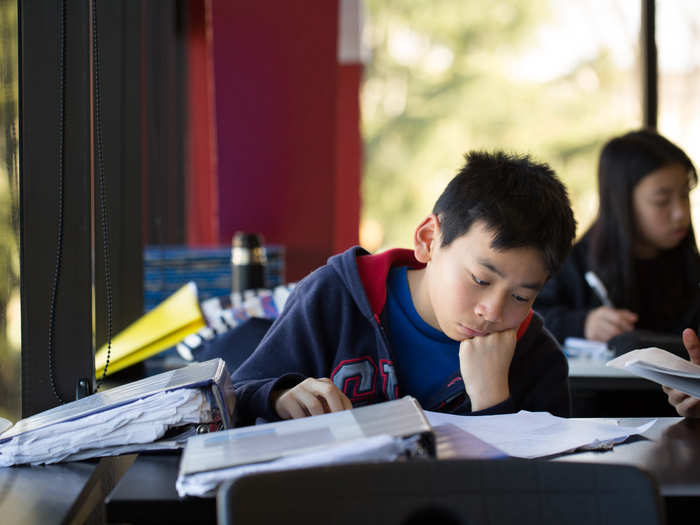
The school's founders believed that they could cherry-pick "the best practices from the best education systems around the world," and the result would be a generation of students who could compete at the international level, according to Basis Independent CEO Ian Block.
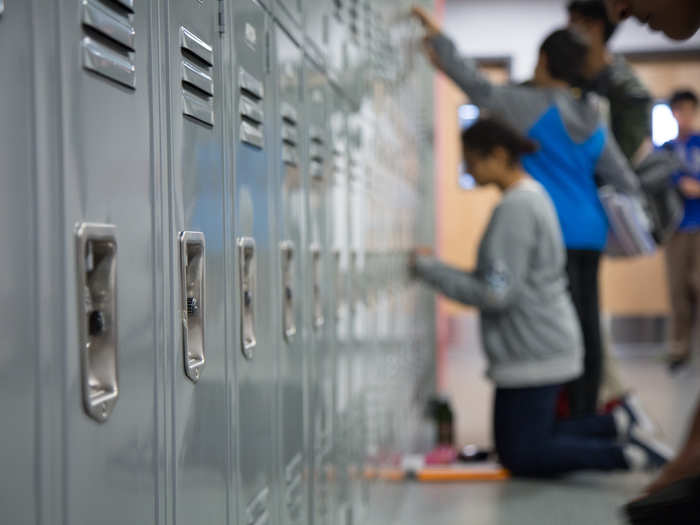
Tuition at BISV costs $27,800 per year for grades five through 12.
In 2016, ninth graders at BISV sat for a worldwide exam and tested higher in math, reading, and science than the average scores of 15-year-olds in China, Korea, and Singapore.

The Program for International Student Assessment, or PISA, is an exam given every three years that measure 15-year-olds in 72 countries. In 2016, the ninth grade class at BISV participated in the Test for Schools, a similar exam administered by the same organization behind PISA, in order to benchmark their performance.
When Basis compared its students' scores on the 2016 Test for Schools with international students' scores on the 2015 PISA, the data showed BISV students tested above their peers.
It's unclear how the performance of students at BISV compares to students at other private schools, or even at other schools in the Basis network. Private schools are not obligated to share this kind of data.
When Basis was looking to branch out of charter schools and build private schools, the school network saw a demand for their brand of academic rigor in Silicon Valley.
San Jose has seen massive population growth since the tech boom of the 1990s, but the number and variety of schools in the area had not caught up by 2014, according to Ian Block.
"People who choose our schools want a great education for their students," said Block, who oversees the private, or "independent," Basis schools and is founder Michael Block's nephew.
Today, Basis operates six private schools and 22 charter schools across the globe.
"Often times families will see something in our program that they're familiar with," Block added. Students I spoke with said many of their parents are immigrants who are attracted to Basis because it reminds them of their schooling in countries like China and India.
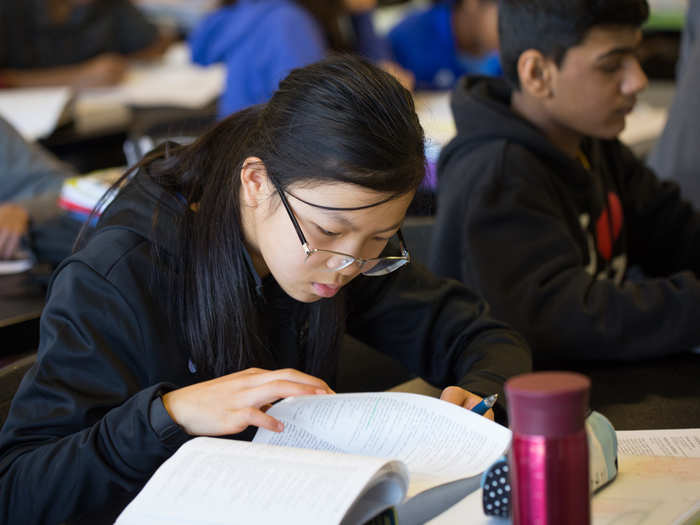
Assessment is at the core of everything Basis does. In my first class of the day, seventh grade biology students had a "pow wow" to discuss a recent "pre-comp" exam.
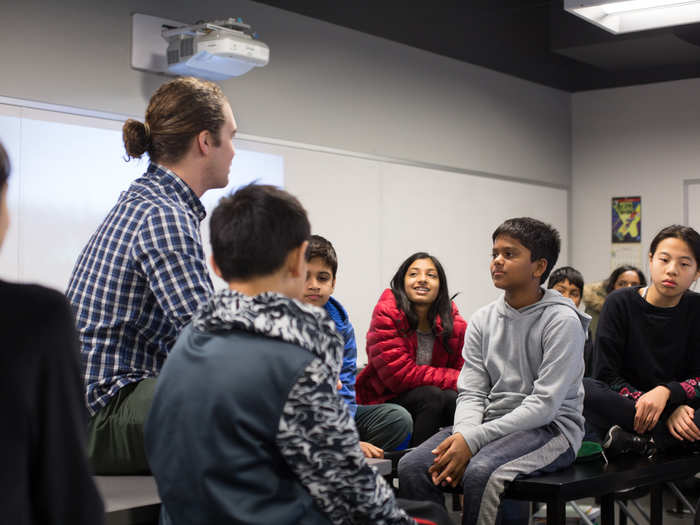
All students take a pre-comp exam halfway through the year and a comprehensive exam at year's end, so Basis can measure their performance against other students at the school.
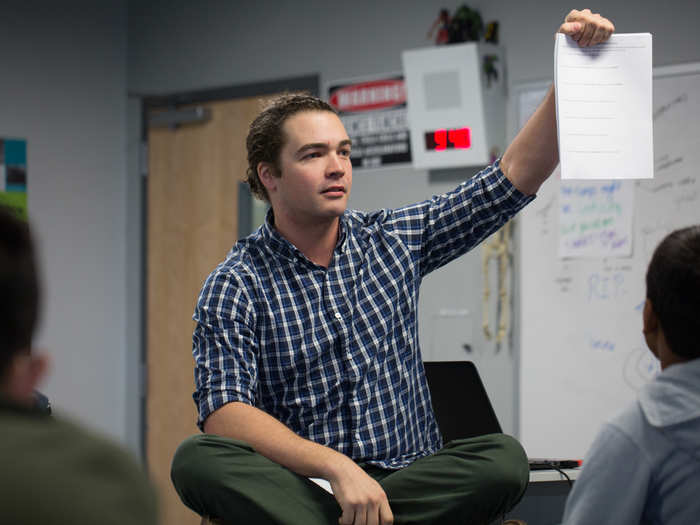
The tests cover everything they have learned so far, and kids need a passing score to move onto the next grade. These students said they felt confident in their results.
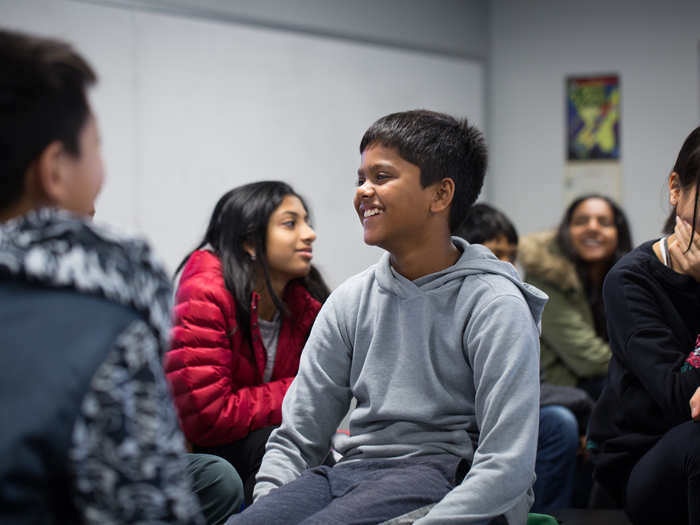
BISV bills itself as a liberal arts program, though it piles on the STEM requirements.
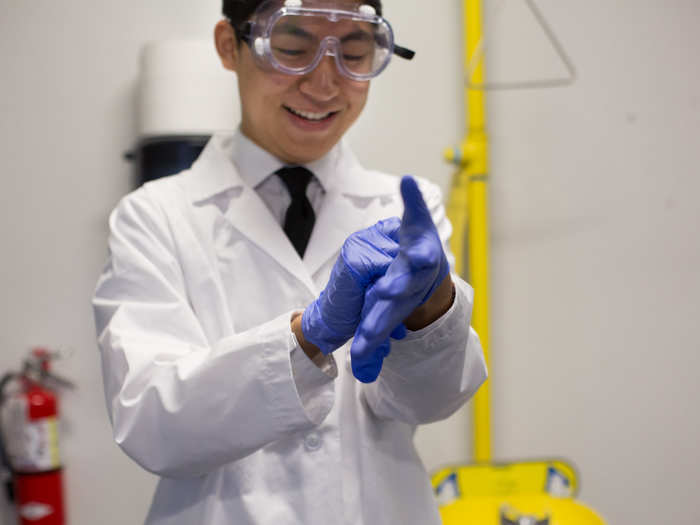
BASIS schools require students to take high-school-level math in middle school, and to begin taking chemistry, physics, and biology as separate science classes in sixth grade.
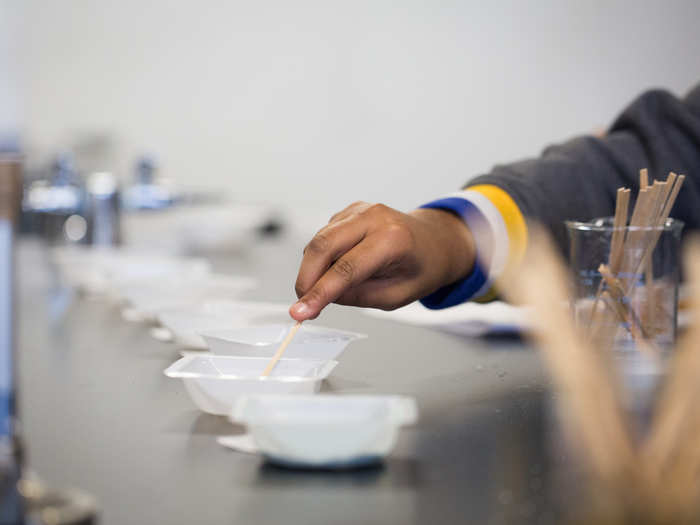
In a sixth grade biology class, students tested chemical elements over a bunsen burner to see what colors they burn. Then they deduced what "mystery elements" might be there.
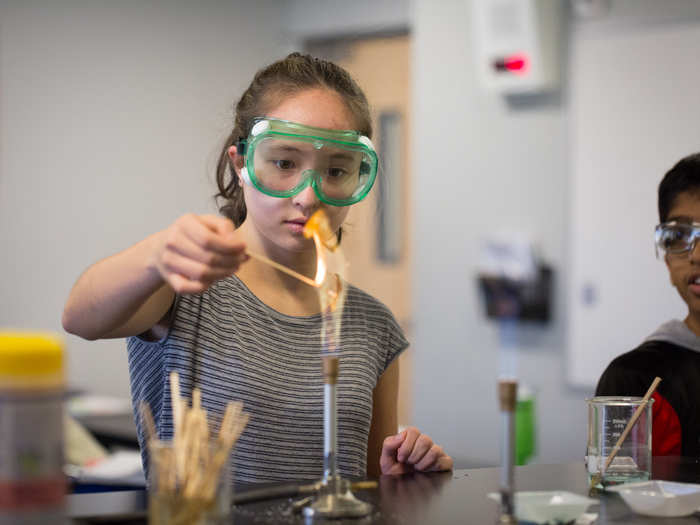
Chemistry teacher Mark Ryan said teachers outside of the Basis network say he's crazy for using bunsen burners with sixth-graders, but he tells them, "They can handle it."
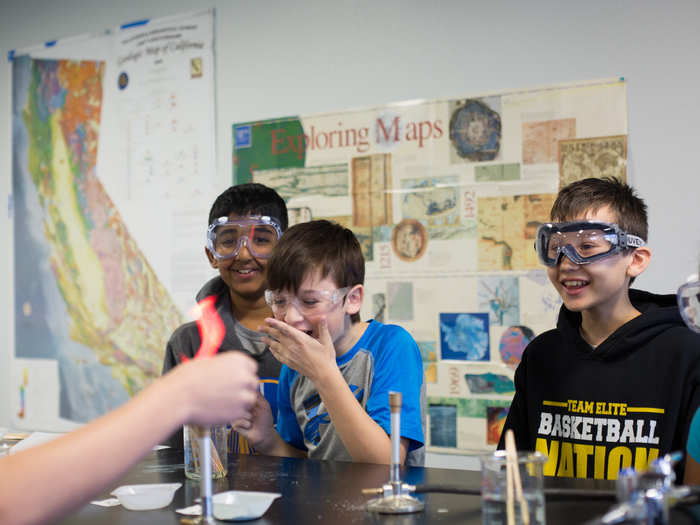
Students told me that their favorite teachers are the ones with a deep connection to their subject matter. Most Basis high school teachers have advanced degrees in their fields.
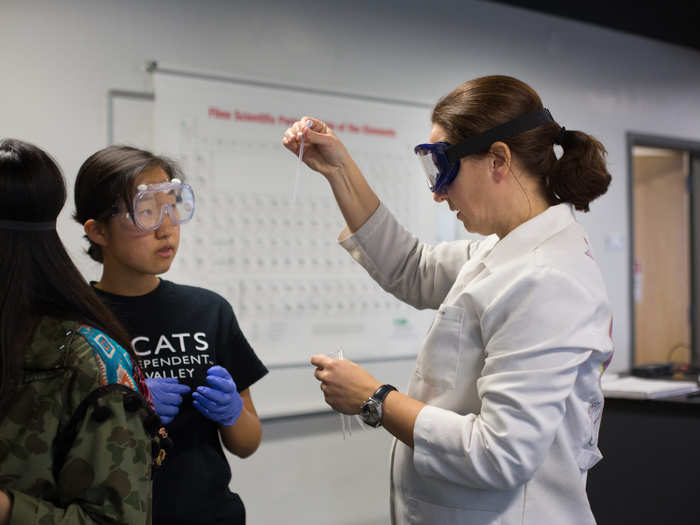
After completing their graduation requirements by the end of 11th grade, seniors dig deeper into the fields that interest them through seminar-style electives called capstone classes.
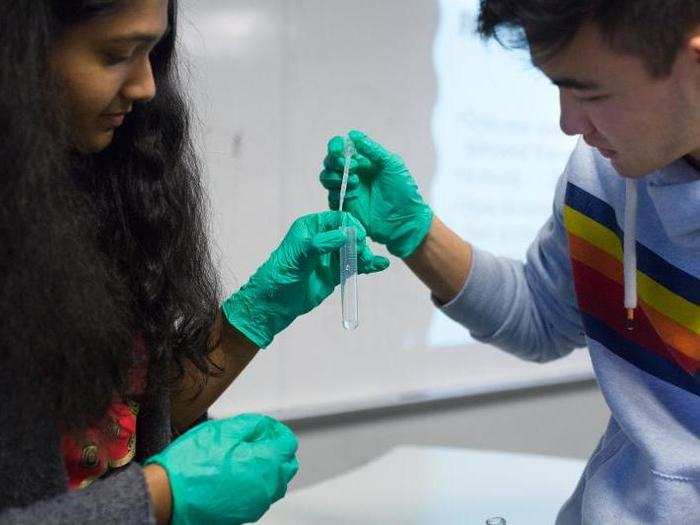
I popped into a Biology of Cancer capstone class where students tested different sunscreens in live yeast samples, in order to measure their ability to provide protection.
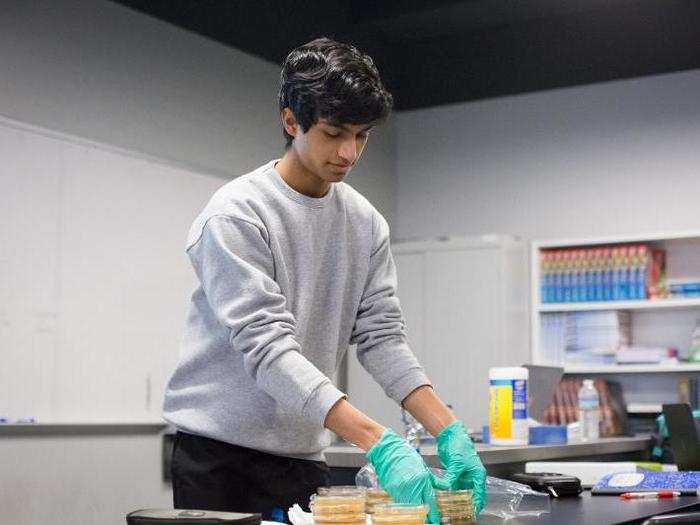
High school students can expect three to four hours of homework each night. All Basis students receive a planner, called a "communications journal," to record assignments.
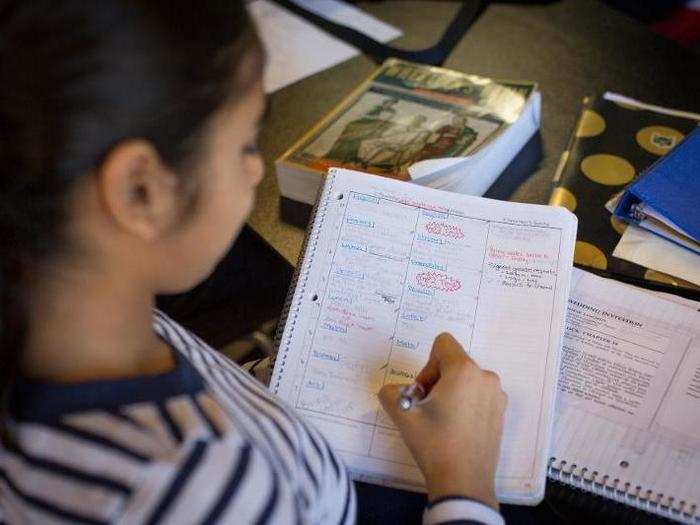
BISV is surprisingly low-tech given its location in the heart of Silicon Valley.
I didn't see anyone using a tablet device or cell phone all day, and laptops were sparse.
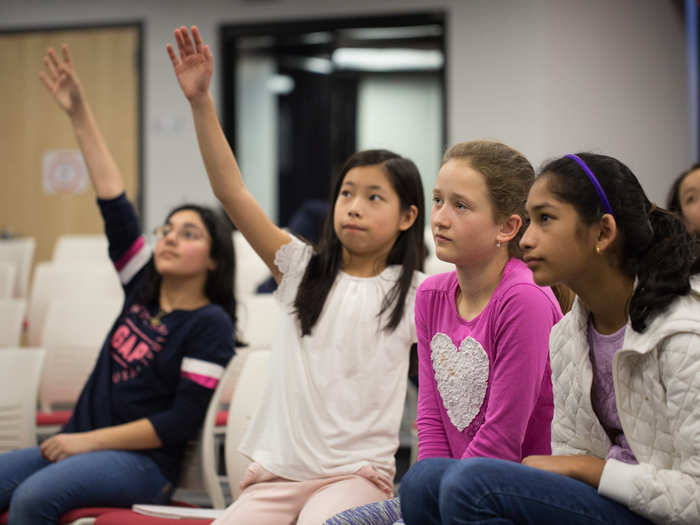
Some schools use software to scale personalized education — an increasingly popular learning style that tailors lessons to students of different ability levels. But critics argue that when technology replaces human instruction, it comes at the cost of learning.
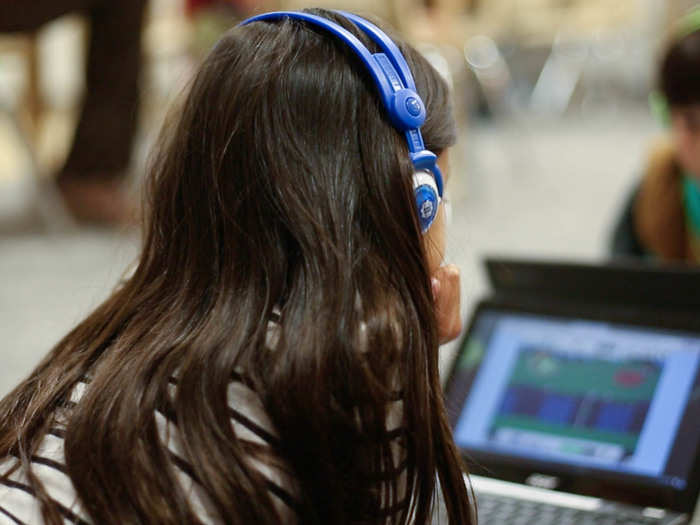
"I think we see technology as a tool. We don't necessarily see it as the solution in and of itself," Block said. "What really makes our classroom work is the teacher."
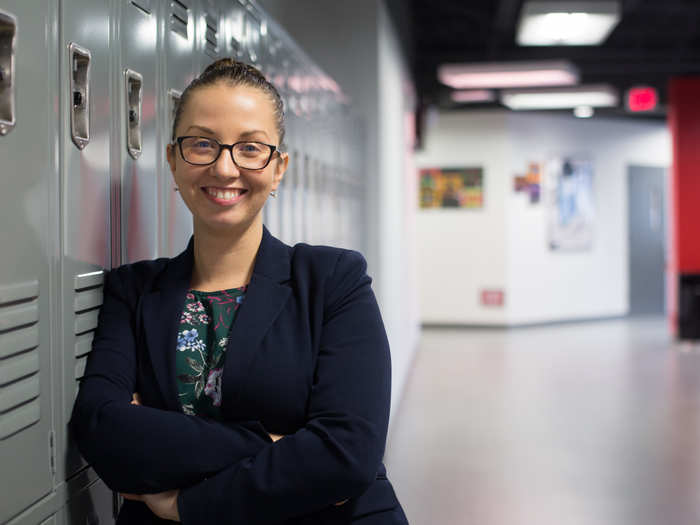
I had a chance to mingle with high school students during lunch. They said that BISV aims to provide a well-rounded education grounded in the humanities as much as STEM.
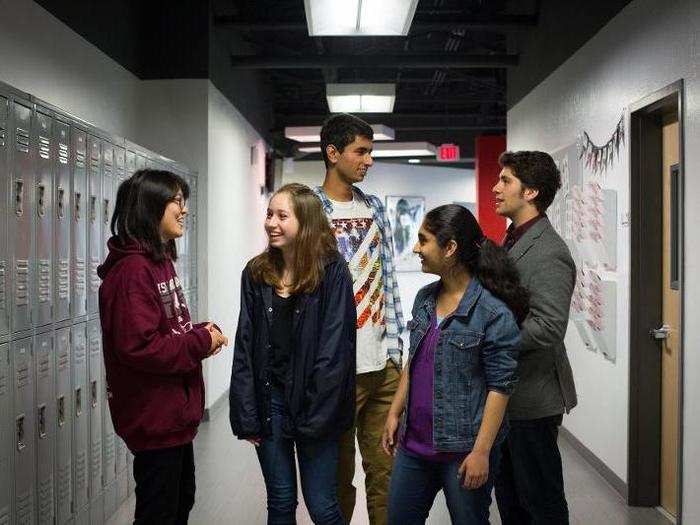
But at home, a different message comes in loud and clear: Success is getting a job in tech.
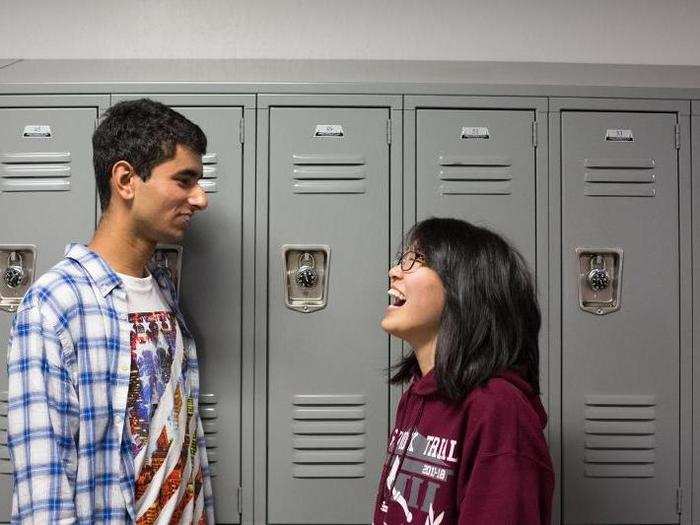
One student told me he comes from a family of engineers. They told him that if he studied computer science, he would have job security for life. After taking a capstone class in anatomy at BISV, he discovered a love of medicine and is planning to pursue the field after high school.
Another student said her parents, who work in STEM, told her she could study theater or the arts. They just wouldn't pay for her college tuition.
The students I spoke with told me most of their parents are immigrants and work in tech.
Toby Walker is the head of school at BISV and a former history teacher. He said students are "acutely aware of where we are geographically." The day I visited, a computer science class was on a field trip at Google's headquarters.
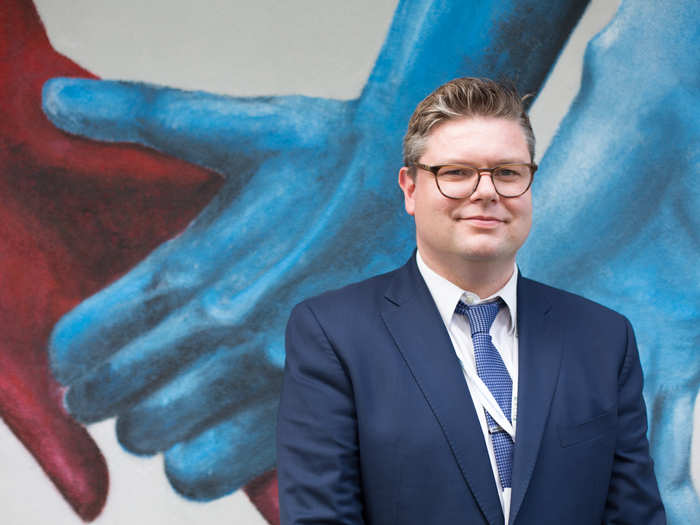
But he doesn't define success by technological literacy. "I want my students to be able to go to a dinner party and speak eloquently across a wide variety of subjects," Walker said.
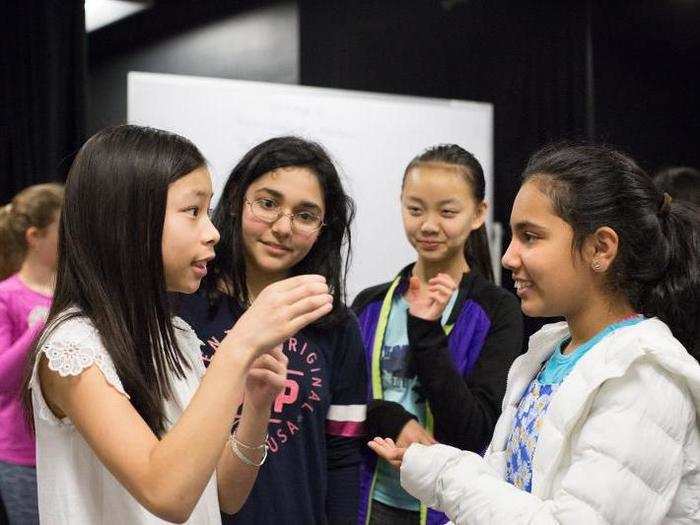
That's a skill most tech workers would agree can only help them in life.
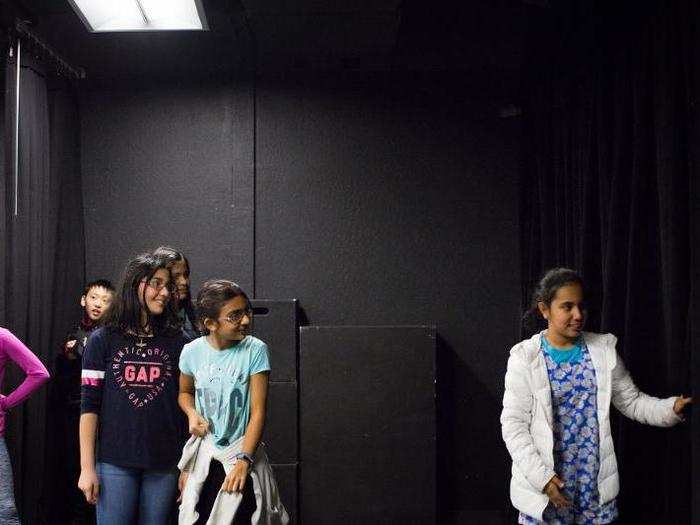
Popular Right Now
Popular Keywords
Advertisement